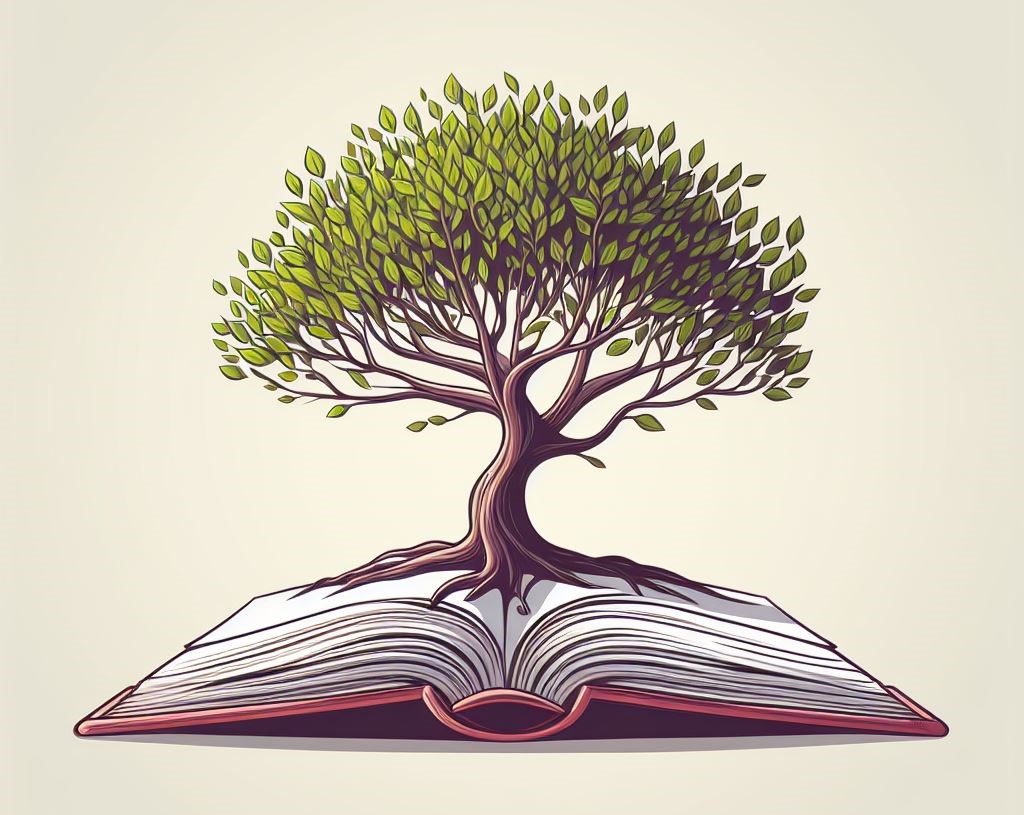Personal development is the bridge to a better life.
Without a doubt, my life would have taken a drastically different course if I hadn’t embraced the idea that I could change via continuous learning and practice. That’s how personal development must be viewed – that you are a work in progress with infinite potential.
After many years on this journey, something has become abundantly clear.
We all start as blank slates, and the quality of your life depends on how you build this slate. We are constantly building ourselves via life experience, exposure, influences, passive learning, active learning, practice, and repetition.
What your life has eventuated into isn’t mere happenstance. It’s a reflection of the person you’ve crafted yourself to be, and the deliberate actions you’ve taken along the way. So let’s look at how it can take your life to a whole new level when treated with respect and grace.
What exactly is personal development?

In a nutshell, personal development means continuously working on yourself to achieve a higher quality of life. It’s a lifelong journey of continuously improving your skills, abilities, traits, and characteristics, to ultimately become the best version of yourself.
There is no modus operandi when it comes to personal development, as it involves every aspect of your life experience – from developing your social skills to improving your financial situation.
However, the core incentive is the same: ‘What do I need to do to become the person who is capable of achieving my goals’. Because at the end of the day, personal development is a quest for self-expansion, to become the best version of ourselves we can be.
The foundation of personal development is the notion that everything about you can be improved. No aspect of yourself is consolidated, which creates space for a complete transformation of self.
That’s the beautiful thing about it. You realize that your mind is elastic, and you can reshape it however you desire. We all have unlimited potential, as long as we actualize ourselves, and work diligently towards our highest personal timelines.
Embarking on the personal development journey
In some ways I was very fortunate growing up. I always had food on the table and I had a loving family. But in other ways, I wasn’t.
For the most part, I just couldn’t understand what was happening. I saw other kids generally getting on with their happy lives, but to me, life itself seemed mind-numbingly complicated.
What’s wrong with me? I thought. Other kids were developing fundamental life skills, but I sat there sucking glue.
So I grew up thinking I was defective. This was the hand of cards I had been dealt, and I had to accept that I would never be normal: A concept that became my biggest fantasy.
Believing that I had something wrong with me led me into a depression for a few years. Fuelled by my desperation to change, I stumbled upon the shining beacon I was looking for – the realization that I could change.
I could learn social skills? I could train myself to become more intelligent? I could become more confident, funnier, and more charismatic? I could become someone I’m proud of, and create a better life for myself?
It all just clicked.
A whole new chapter had been opened, and I was excited to experience it. From that moment, I committed to personal development and never looked back.
Embracing the personal development journey
The pursuit of developing myself into the person I wanted to be led me down a rabbit hole. This journey became more philosophical as I set my sights on happiness and fulfillment – which led me to explore spirituality.
It took me many years of consistent practice to create big changes in my life. It was slow going for the first few years, but I pushed forward even when it felt hopeless.
Even today, many years after embarking on this journey, I still face challenges. New challenges replace the old ones, and each stage of your growth encompasses a different dimension of your life experience.
Here’s an example.
You may begin improving your dating skills if you believe a partner is an antidote to your misery. Once you’re competent in dating and have a partner, you might discover that there is still a hole, so you start searching for the keys to fulfillment.
While searching for fulfillment, you may discover that your childhood wounds may be the cause of your contempt. So this leads you to shadow work, which then leads you to spiritual doctrines, which then leads to your mindfulness, and so forth.
Therefore, don’t perceive personal development as a linear journey. Personal development is a labyrinth, it’s an ecosystem that needs to be revitalized, and all roads will lead you further into the depths of your consciousness, one way or another.
What I’ve come to realize is that there will always be challenges. There will always be more opportunities for growth and healing. Personal development is by no means a switch that needs to be flicked, rather it’s a seed that needs to be watered daily.
How can personal development change your life?

Personal development doesn’t pertain to any particular area of your development. However, it’s wise to pick your battles and decide which areas in your life need the most improvement.
To organize yourself, we’re going apply personal development to the four-bodies approach. The four bodies approach compartmentalizes our life experiences into 4 distinct areas which are:
- Your physical body
- Your emotional body
- Your mental body
- Your spiritual body
First off, which body do you feel isn’t performing at its best? Perhaps you’re out of shape, abusing a substance, or feeling physically unhealthy. In this case, it might be wise to prioritize working on your physical body, and restoring it to a healthy state.
Perhaps you take care of your body, but your mind is the issue. Maybe your beliefs aren’t serving you, or your outlook on life/oneself needs improvement. In this case, what can you do to begin making the cognitive changes that you want?
On the other hand, maybe your emotional body needs the most work. You may have a lot of trauma that needs to be healed, You may feel generally anxious, depressed, or overwhelmed. If your emotions are out of balance, focus on your emotional body.
It’s important to look into each area of your life to assess where you need the most work, and where you should put your focus. As you begin to explore opportunities for improvement, you will naturally branch into other areas of your life experience too as they’re all interconnected.
However, this allows for a more organic process, and take it from there.
Personal development goals

Now that we’ve looked at some different areas where personal development can improve your life, let’s look at more specific paths you can take to achieve your goals.
Start by brainstorming some reasons why you want to improve any particular area of your life, what it entails, and how you can do it.
Here are some examples:
Develop your social skills
Why:
- To have a rich and abundant social life
- To have a fun and active dating life, or find someone to settle down with
- To become good at networking, making friends, and finding new opportunities in life
What:
- Develop good people skills
- Develop conversational skills
- Learn how to talk to people with ease
- Work on your sense of humor
- Develop confidence
- Develop charisma
- Work on the fear of being rejected or judged
- Learn how to read people’s emotions
- Become more socially calibrated
How:
- Start talking to more people daily to practice conversational skills
- Start getting out of your comfort zone and introducing yourself to new people
- Start organizing catchups more regularly with people you know
- Research social skills and see what you can apply to yourself
- Find networking events or social events in the area and go to them
- Take a course on socializing if you don’t know where to begin
Love yourself
Why:
- To counter negative feelings and attitudes about oneself such as self-pity, the victimhood mentality
- To develop self-respect, self-worth, and to value oneself
- To enjoy life more
What:
- Heal the underlying wounds causing this detrimental outlook
- change your mindsets and perceptions
- Develop the traits and characteristics that make you feel valuable
How:
- Do affirmations and affirm a more positive reality
- Spend time processing the underlying wounds that are causing you feelings of shame, guilt, or self-pity
- Reinforce everything that you find to be valuable about yourself
- Discard the traits and characteristics that you don’t like about yourself, and work on developing better characteristics that are more aligned
Be more at peace
Why:
- Stop being so stressed all the time
- Find inner calmness and composure
- Increase mental health and vitality
What:
- Change your perspective of stressful situations
- Develop a higher point of view outlook
- Develop existential beliefs that make you feel comfortable with your mortality
How:
- Expose yourself to more situations in life, to put your life into perspective
- Start meditating regularly, and practice mindfulness
- Train yourself to see the silver lining and develop an optimistic view of life
- Seek out spirituality and see how it changes your interaction with the world around you
Train your intelligence
Why:
- Become a more capable and competent person to better navigate the world, capitalize on opportunities, and leverage your skills and abilities to get somewhere in life
What:
- Increase your knowledge base
- Generally become more informed, about more subjects
- Improve comprehension of ideas and concepts
- Increase your processing speed
- Articulate information better
- Increase your memory
How:
- Regularly do brain training exercises
- Do memory exercises
- Seek out more knowledge in all forms
- Develop curiosity about the world, and actively attempt to connect the dots
- Have more conversations with more people, about a wider range of subjects
- Read more books, watch documentaries, and pivot towards helpful media rather than entertainment
- Engage in debate and question things
- Put yourself in productive environments that encourage learning and growth
Cornerstones of personal growth

Cultivate awareness
Your personal development journey starts by cultivating an awareness of what you need to improve upon.
This is where you want to think critically about your life, and the areas that you’re lacking in.
Write down all the different areas of your life that you need to work on. Prioritize those items from the most crucial to the least crucial to develop. Then within each item, brainstorm things that you could do to improve that part of your life.
Seek information
Knowing what you need to work on is a start, but you probably don’t know what to do. This is why it’s important to seek out good information to guide you.
See this stage as a theoretical component of personal development. Seeking out information on the subject will give you a much deeper understanding of why you’re not where you want to be, and what you can be doing better.
Start reading books on the subject, taking courses, watching videos, signing up for programs, and going to workshops. Inundate yourself with as much knowledge as possible about your areas of focus, and you’ll have plenty of knowledge to actualize.
Set goals
Setting goals is a crucial part of personal development because if you don’t have goals, you can easily lose motivation. Goals are organizational tools.
Aiming to talk to strangers without feeling anxious by the end of the year is a good goal, and gives you something to continuously work towards. Aiming to become extremely confident and charismatic by the end of the year is not a realistic goal. Therefore, make appropriate targets, but don’t overshoot.
Create realistic and actionable goals for your areas of focus. Divide these goals into weekly goals, monthly goals, and yearly goals, and make sure you stick to them.
Take inspired action
Being relatively knowledgeable about the subject gives you information to apply. Setting goals gives you a framework to apply them. What you need to do now is put it into action, and practice.
Taking inspired action is the practical component of personal development. You can learn everything about the subject at hand, but unless you take actionable steps toward the results you want, nothing is going to change.
Make sure that you do the heavy lifting. This involves getting out of your comfort zone and failing. It involves taking a risk and pushing yourself to grow as a person.
Stay motivated
Personal development is not a quick process, rather you should see it as a lifestyle that fruits the energy you expend into it. Think of personal development as passive income. It manifests proportionately to the amount you feed it. The more energy you put into working on yourself, the more it will pay off later down the track.
It takes time to see the fruition of your hard work. At the start, you will feel like you’re grinding as the act of self-betterment is gradual, so don’t get discouraged if you don’t see instant changes.
Your desire to change fuels the process of change. If you’re not hungry for change, you will get complacent. You will give up when it gets difficult or when you feel discouraged or lost. But there needs to be a deeper yearning behind all of that.
Set your intentions and hold your reasons close because they’re going to be what carry you through to the end. Acknowledge that you will feel discouraged at times, and it might seem like a gruelingly slow process at times. But stick with it.
Be consistent
Be consistent with your effort, and continuously take small steps towards your goals. As long as you have the desire, you’re always going to be on the lookout for opportunities to develop yourself.
A small chat with a chop clerk is going to help you improve your interpersonal skills. A broken heart will teach you how to open your heart, even drinking a coffee in your garden is an act of being more mindful.
Think about how you can leverage any given experience to improve a skillset, characteristic, or mentality. Use everyday occurrences as opportunities to nudge yourself slightly closer to who you want to become.


9 comments
Oh my goodness! Impressive article dude! Many thanks,
However I am encountering issues with your RSS. I don’t know
why I cannot subscribe to it. Is there anyone else getting identical RSS issues?
Anyone who knows the solution can you kindly respond?
Thanks!!
There have been some issues with the subscription form that I’m working on now. Hopefully get it all sorted in the next few days, so try again soon!